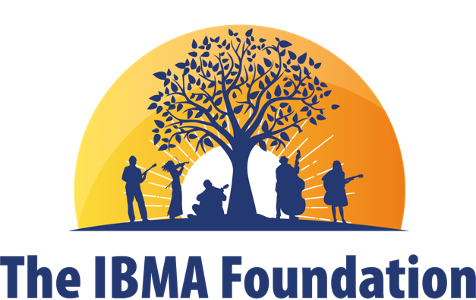Donor Spotlight:
Tom Brown

This month we visit with IBMA Foundation supporter Tom Brown. From Dalton, Georgia, Tom is a retired teacher who worked with visually impaired students for many years and more recently served as the part-time director of a local health clinic for the underprivileged. He is a prolific songwriter—many humorous, some serious—and has appeared several times on the stage of IBMA Bluegrass Songwriter Showcase. Tom wrote and starred in a bluegrass musical comedy production called Fat Shirley’s Trailer Park Opry, which has been presented in several different states and toured in the United Kingdom. Brown also wrote an old-time music style score for Twisted Roots, a stage production inspired by the life of Emma Bell Miles, set in the late 19th – early 20th century. A banjo and guitar player as well as the producer of the Dalton Woodsongs concert series, Tom has been spending time during the past year tending a top-shelf garden, co-writing by email and cell phone, and learning to sharpen saws.
Q. How did you get interested in bluegrass music, and how are you involved now?
I grew up in a musical household. My mother had a music degree from Westminster Choir College and my father loved to sing songs of the 1920s through the 1950s. Mom was the founder of the Chattanooga Boys Choir, taught piano, directed church choirs, and always had music playing on the record player—usually Rodgers and Hammerstein albums. My sister Caroline wanted to play the harp from a very young age, and around the age of 12 she started taking lessons. As a professional harpist she has performed with many symphonies and orchestras including the National Symphony, the National Opera, the Chattanooga Symphony and Orchestra, and has been on tour to Japan, Europe, and South America.
I, on the other hand, took the road less traveled (more like a path through the woods in my case) when I discovered the banjo. Back in the early 1960s, when there were rooftop antennas and three television networks, I was fortunate to discover one station that would air Flatt and Scruggs on Saturday afternoons. Later I remember watching Jim and Jesse, as well as country music shows that would sometimes feature songs with a banjo and a fiddle. I didn’t know exactly what to call this music, but I liked the drive, the instrumentation, and that soulful mountain singing. When I was in college I had the good fortune of inheriting a low-end five-string banjo from my grandmother’s second cousin. I never met the man, but he certainly made a posthumous impact on the direction of my life with that aluminum body “Made in Japan” drum-headed marvel.
Like my sister, I have been on tour. I have played in parking lots, front porches, barbecue joints, and places like Fairmount, South Pittsburg, Tunnel Hill, Calhoun, the Birchwood Opry, Reliance, Atlanta, Galax, and Chattanooga. Bluegrass has been more of a hobby gotten out of hand than a career path, but I have enjoyed every minute of it. I have performed with the regional band Spatial Effects for nearly twenty years, and during the past year we were on our Northwest Georgia Socially Distanced COVID Tour, playing six feet apart to a socially distant audience in parking lots. We look forward to doing that again when the weather is warmer. I am still doing a bit of songwriting, porch picking, and maybe one day, when we can see the pandemic in the rearview mirror, can start playing again at indoor venues and bringing the bluegrass musical Fat Shirley’s: A Trailer Park Opera back to the stage
Q. Why do you choose to support the IBMA Foundation, and why do you think others might want to consider this?
A. I support the IBMA Foundation for a number of reasons. First, I would like to see the cultural traditions of the bluegrass genre continue on. I know of no other style of music where you can meet some strangers in a parking lot on the back side of a ridge in the middle of nowhere and jam ’til the cows come home. It is more than music (some of my family members think it may be a cult) that the Foundation is helping to preserve.
I also support the Foundation because of its emphasis on education. My donations can impact young people who are on their own musical paths. There are so many amazing, talented young people these days that benefit from the grants and scholarships provided by the Foundation that will help to keep the music alive and make it thrive. Pass it on!

Recent Comments